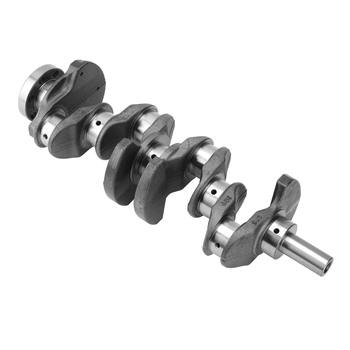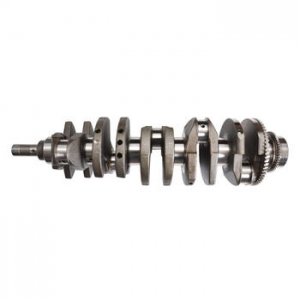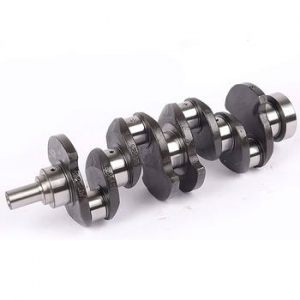
A functioning crankshaft is vital to your car's engine. It converts the up-and-down motion of the pistons into rotational energy, powering the wheels. So, what happens when your crankshaft goes out? The consequences can range from annoying noises to catastrophic engine failure.
Understanding the Crankshaft's Role
The crankshaft is essentially the backbone of your engine. It's a complex piece of machinery, precisely engineered to withstand immense pressure and constant motion. Without a properly functioning crankshaft, your engine simply won't work. It connects to the pistons via connecting rods and transmits power to the transmission, ultimately driving your vehicle.
Signs of Crankshaft Problems
Before a complete crankshaft failure, your car will likely exhibit warning signs. These can include knocking or ticking noises from the engine, low oil pressure, and vibrations, especially at higher speeds. Ignoring these symptoms can lead to more severe and costly damage. Have you noticed any of these signs in your vehicle?
Causes of Crankshaft Failure
Crankshaft failure can stem from various factors, including lack of lubrication (low oil level), excessive engine load, or even manufacturing defects. Another common culprit is a worn-out bearing. These bearings support the crankshaft's rotation, and their failure can cause significant damage to the crankshaft itself. One less common but severe cause is hydrolock, where liquid enters the cylinder and prevents the piston from completing its stroke, putting immense stress on the connecting rods and crankshaft.
The Catastrophic Consequences
When your crankshaft goes out completely, it can cause catastrophic engine damage. Broken connecting rods can pierce the engine block, and damaged pistons can score the cylinder walls. In many cases, a complete engine rebuild or replacement is the only solution. This is why addressing early signs of crankshaft problems is crucial.
Diagnosing a Failing Crankshaft
Diagnosing crankshaft problems requires a trained mechanic. They might use specialized tools like a borescope to inspect the crankshaft bearings or conduct an oil pressure test. Pinpointing the exact cause of the issue is vital for determining the correct course of action.
Repair Options and Costs
Repairing or replacing a crankshaft is a major undertaking and a significant expense. Depending on the extent of the damage, the costs can range from a few hundred dollars for minor repairs to several thousand for a complete crankshaft replacement or engine rebuild. In some cases, especially with older vehicles, replacing the entire engine might be more cost-effective than repairing a severely damaged crankshaft.
Preventing Crankshaft Failure
Regular maintenance is the key to preventing crankshaft failure. This includes regular oil changes with the correct oil viscosity, avoiding excessive engine loads, and addressing any unusual engine noises promptly. This preventative approach can save you a lot of money and hassle in the long run.
Crankshaft Failure vs. Other Engine Problems
It's important to distinguish crankshaft failure from other engine problems. While similar symptoms might manifest, such as knocking noises, the underlying causes can be different. A professional mechanic can accurately diagnose the problem and determine if it's related to the crankshaft, connecting rods, or other engine components.
What to Do if You Suspect Crankshaft Failure
If you suspect your crankshaft is failing, stop driving the vehicle immediately. Continued operation can exacerbate the damage and lead to more costly repairs. Have your car towed to a qualified mechanic for a thorough inspection and diagnosis. Don't delay seeking professional help – early intervention is essential. Understanding what happens when your crankshaft goes out empowers you to take the necessary steps to protect your vehicle and avoid a potentially disastrous engine failure.

 The Unseen Powerhouse: Unveili
The Unseen Powerhouse: Unveili
 Unveiling the Precision: The A
Unveiling the Precision: The A
 Navigating the World of Cranks
Navigating the World of Cranks
 The Unsung Heroes: What Makes
The Unsung Heroes: What Makes
